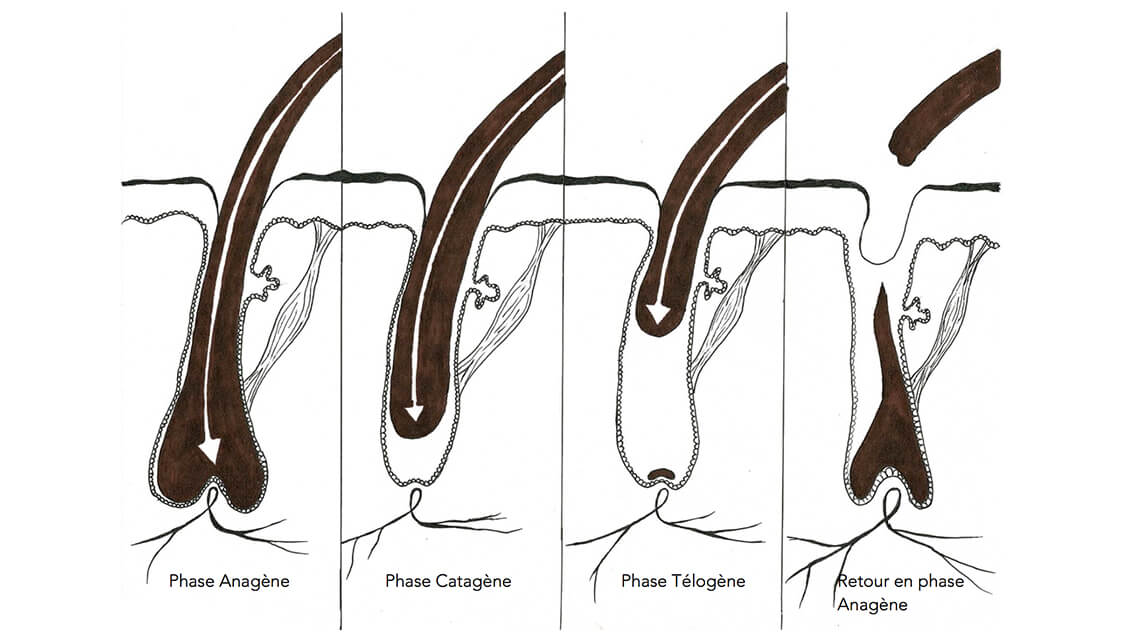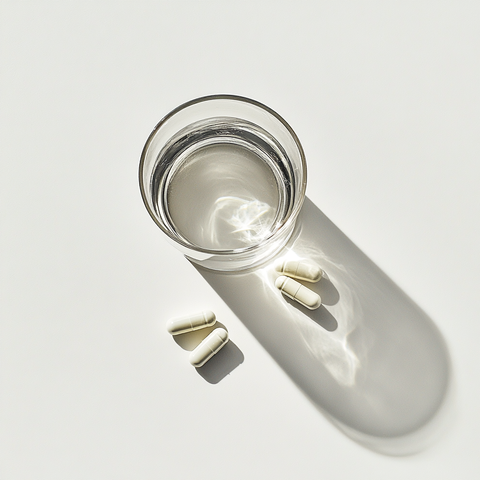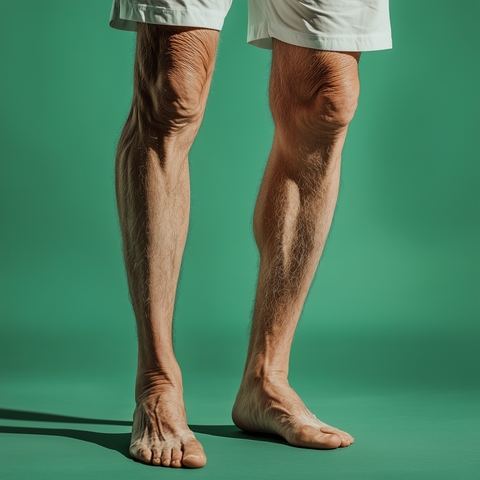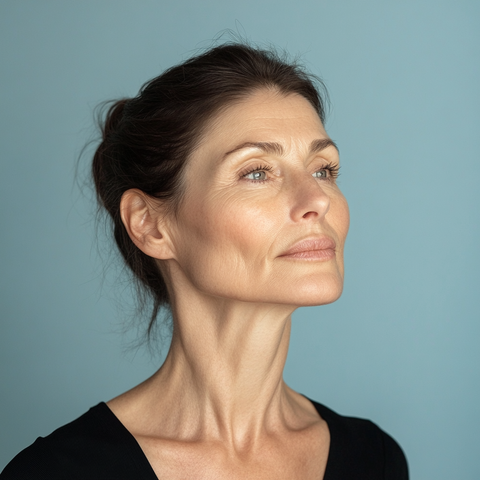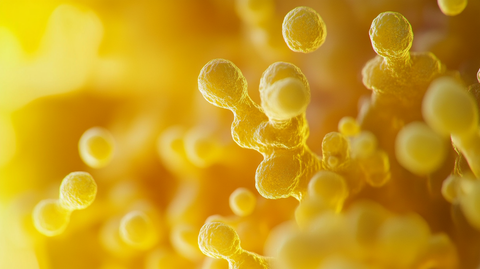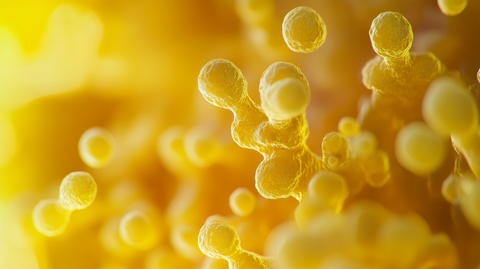How to prevent hair loss in women?
Hair loss is a phenomenon that affects many women at different stages of their lives. While losing a few hairs a day is perfectly normal, excessive hair loss can be alarming and stressful. Although hair loss is more commonly associated with men, women are not immune to this problem. Understanding the underlying causes and implementing strategies to prevent hair loss is essential for maintaining a thick, healthy head of hair. This article takes an in-depth look at the various causes of hair loss in women and offers solutions for effective prevention.
1. Understand the hair life cycle
Before talking about prevention, it is important to understand the hair life cycle . Each hair goes through three growth phases:
- The anagen phase (growth phase) : This phase lasts between 2 and 7 years. Hair grows actively.
- The catagen phase (transition phase) : This phase lasts about 2 to 3 weeks. Hair growth stops, and the follicles begin to shrink.
- Telogen phase (resting phase) : This phase lasts about 3 months. Hair stops growing and eventually falls out, making way for new hair.
It's normal to lose between 50 and 100 hairs a day, as new hairs continually grow to replace the lost hairs. However, when hair loss becomes more severe, it may be a sign of an underlying problem that's important to identify and treat.
2. The main causes of hair loss in women
Hair loss in women can be caused by a variety of factors, including hormonal, genetic, nutritional, and environmental factors. Identifying the cause is the first step in finding the right solution.
a) Hormonal fluctuations
Hormonal fluctuations are one of the most common causes of hair loss in women. Several key moments in a woman's life can lead to hormonal imbalances, resulting in temporary or prolonged hair loss.
- Pregnancy and childbirth : During pregnancy, estrogen levels increase, prolonging the hair growth phase (anagen). However, after childbirth, estrogen levels drop, leading to significant hair loss (telogen effluvium). This loss is usually temporary, and hair begins to grow back after a few months.
- Menopause : During menopause, estrogen levels decrease while androgen (male hormone) levels increase, which can lead to hair thinning and diffuse hair loss.
- Polycystic ovary syndrome (PCOS) : PCOS is a hormonal disorder that can lead to excess production of androgens, which can cause hair loss in affected women.
b) Genetics
Androgenic alopecia is a hereditary form of hair loss that affects both men and women. In women, this condition manifests as a gradual thinning of hair, particularly on the crown of the head, while the hairline remains intact. It is possible to inherit this type of hair loss from either the mother or the father.
c) Stress
Stress , whether physical or emotional, is another major factor in hair loss in women. Stress triggers a reaction in the body that causes the hair growth cycle to malfunction, leading to excessive hair loss.
- Telogen effluvium : This type of hair loss is often triggered by intense stress or emotional shock. It causes a large number of hair follicles to prematurely enter the resting phase, causing widespread hair loss a few months after the triggering event.
- Trichotillomania : This is a compulsive disorder where a person feels the urge to pull out their hair in response to stress or anxiety. This can lead to localized hair loss.
d) Nutritional deficiencies
An unbalanced diet or deficiencies in essential nutrients can have a direct impact on hair health. Hair needs vitamins , minerals , and proteins to stay strong and grow healthily. Here are the main deficiencies that can lead to hair loss:
- Iron : Iron deficiency, often linked to anemia, can cause diffuse hair loss. Iron is essential for transporting oxygen to hair follicles.
- Protein : Hair is made primarily of keratin , a protein. Insufficient protein intake can weaken hair and lead to hair loss.
- Biotin and Zinc : These two nutrients are essential for healthy hair and nails. A biotin deficiency can lead to hair loss, while a zinc deficiency can affect keratin production.
- Vitamin D : A lack of vitamin D can disrupt the hair growth cycle, leading to excessive hair loss.
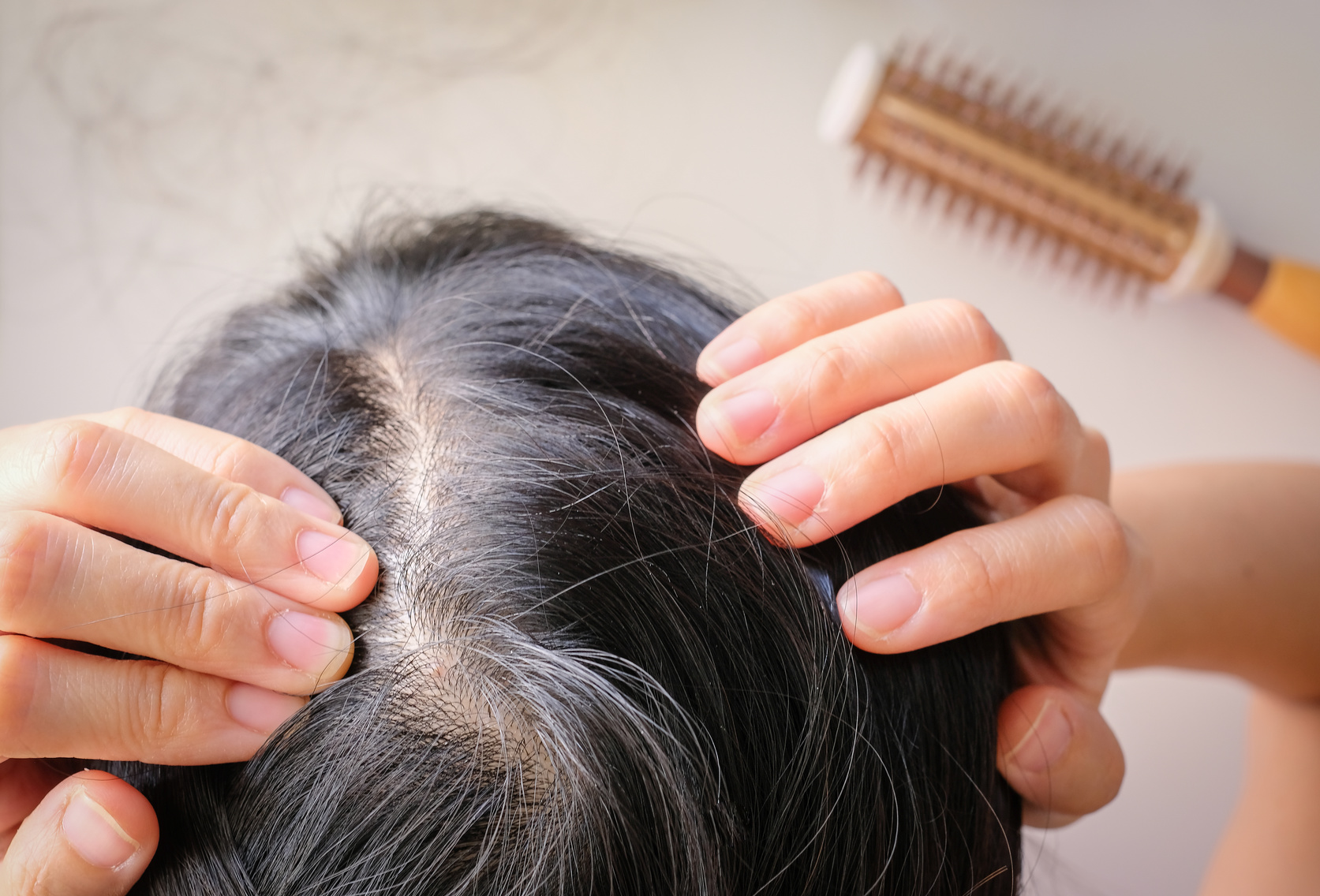
3. How to prevent hair loss in women?
The good news is that there are several ways to prevent and treat hair loss in women, depending on the underlying cause.
a) Adopt a balanced diet
A diet rich in protein , vitamins , and minerals is essential for healthy hair. Here are some key nutrients to include in your diet to prevent hair loss:
- Protein : Include high-quality protein sources such as fish, eggs, nuts, and legumes.
- Iron : Eat foods rich in iron such as spinach, lentils, and red meat.
-
Biotin : This vitamin is found in eggs, nuts, and whole grains. If you are deficient, a biotin supplement may be helpful, such as the one offered by June Laboratoire , which supports healthy hair and nails.
- Zinc : Foods rich in zinc such as oysters, pumpkin seeds, and beef can help prevent hair loss.
b) Take suitable food supplements
If your diet alone isn't enough to cover your nutritional needs, dietary supplements can offer additional support to prevent hair loss. For example, June Laboratoire 's Anti-Hair Loss Formula contains key ingredients such as horsetail, keratin, and biotin, which support hair growth while reducing hair loss.
c) Manage stress
Stress management is essential to prevent hair loss. Here are some effective techniques to reduce stress and promote an environment conducive to hair health:
- Meditation : Meditation and breathing exercises can help calm the mind and reduce stress.
- Physical exercise : Regular physical activity helps release endorphins, the feel-good hormones, which reduce stress and improve blood circulation to the scalp.
- Yoga and relaxation techniques : These practices promote relaxation and help reduce anxiety and stress, which are aggravating factors in hair loss.
d) Use suitable hair care products
The hair care you use also plays a role in the health of your hair. Opt for gentle products that are suitable for your hair type. Avoid harsh shampoos containing sulfates, as they can dry out and damage hair. Nourishing hair masks and natural oils, such as coconut oil or castor oil, can also strengthen hair and stimulate growth.
4. Treat hormonal causes
If hair loss is linked to hormonal fluctuations, it is essential to consult a healthcare professional to obtain an accurate diagnosis and appropriate treatment.
Treatment of androgenic alopecia
Hormone treatments may include medications to regulate androgen levels, such as minoxidil , which is often prescribed to stimulate hair regrowth in women with androgenic alopecia. It is recommended to consult a dermatologist to determine the most appropriate treatment for your situation.
Conclusion
Hair loss in women can be caused by a variety of factors, but the good news is that there are ways to prevent it. By eating a balanced diet, managing stress, using the right hair care products, and taking dietary supplements like those offered by June Laboratoire,


